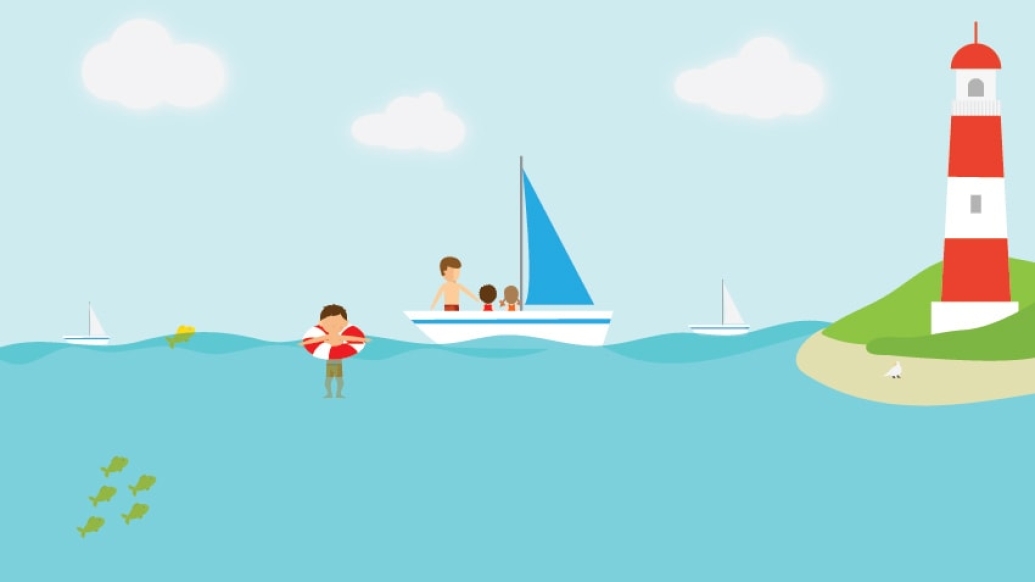Don’t let a leisurely boat trip turn perilous. Here’s how to avoid common injuries and hazards while out on the water.
3:00 PM
Author |

With their state's borders touching four of the five Great Lakes, Michiganders have a love affair with the water.
MORE FROM MICHIGAN: Sign up for our weekly newsletter
It's easy to see why: The state also boasts more than 11,000 inland lakes. And in 2015, Michigan recorded nearly 800,000 registered boats — the third-highest tally in the country.
But associated dangers and accidental death can affect boat passengers in any body of water, regardless of size or location.
So before casting off this summer, keep these tips in mind to stay safe on the water and out of the emergency department.
How to enjoy boating safely
Wear a life jacket: You might not plan to go into the water, but most fatalities associated with boating are due to drowning. Everyone on board, including children, should have a life jacket. Wearing them at all times gives you the best protection.
Learn survival skills: Make sure all children on board have taken swimming lessons and a boating safety class with your family to keep everyone safe. That knowledge can be lifesaving in an accident. Never leave your children unsupervised on the boat or around water.
SEE ALSO: Don't Let These 7 Dangerous Foods Spoil Your Picnic
Pack safety equipment: Bring a fire extinguisher, first-aid kit, flashlight and an air horn or whistle for signaling. It's also a good idea to have a cellphone or marine radio, depending on where you will be boating, to communicate in an emergency.
Plan your route: Have an itinerary in mind and share it with someone who isn't on the trip. Tell that person where you're going and when to expect you back. That way, they can direct help to the right place quickly if you don't return on time.
Watch the weather: Wind can kick up rough water, which can pose a hazard to small watercraft. Additionally, lightning is a risk to an open boat exposed on the water. Check the forecast for any day you plan to go out. Delay your voyage if the weather is hazardous, and have a plan to take shelter fast if a sunny day suddenly becomes threatening.
Be smart about alcohol: Just as you would in an automobile, have a designated driver for the boat if necessary. Keep in mind that alcohol can cause you to dehydrate more quickly in the hot sun. Drink plenty of water, and don't swim or dive while intoxicated.
Look before you leap: Diving from a boat can lead to injury if underwater obstructions lurk below. If you decide to jump into the water, be sure that there are no known obstructions in the area — and jump in feet first to avoid head and neck injuries from hidden objects.
Know your environment: The Great Lakes, by virtue of their size, are more likely to have larger waves and be cooler than shallow inland waterways. Water in Lake Superior, for example, measured a bone-chilling 37 degrees Fahrenheit in June. Cold water can lead to hypothermia and unconsciousness in as little as 15 minutes, so wearing a life jacket and getting out of the water and rewarmed quickly are your best chances for survival.

Explore a variety of health care news & stories by visiting the Health Lab home page for more articles.

Department of Communication at Michigan Medicine
Want top health & research news weekly? Sign up for Health Lab’s newsletters today!





